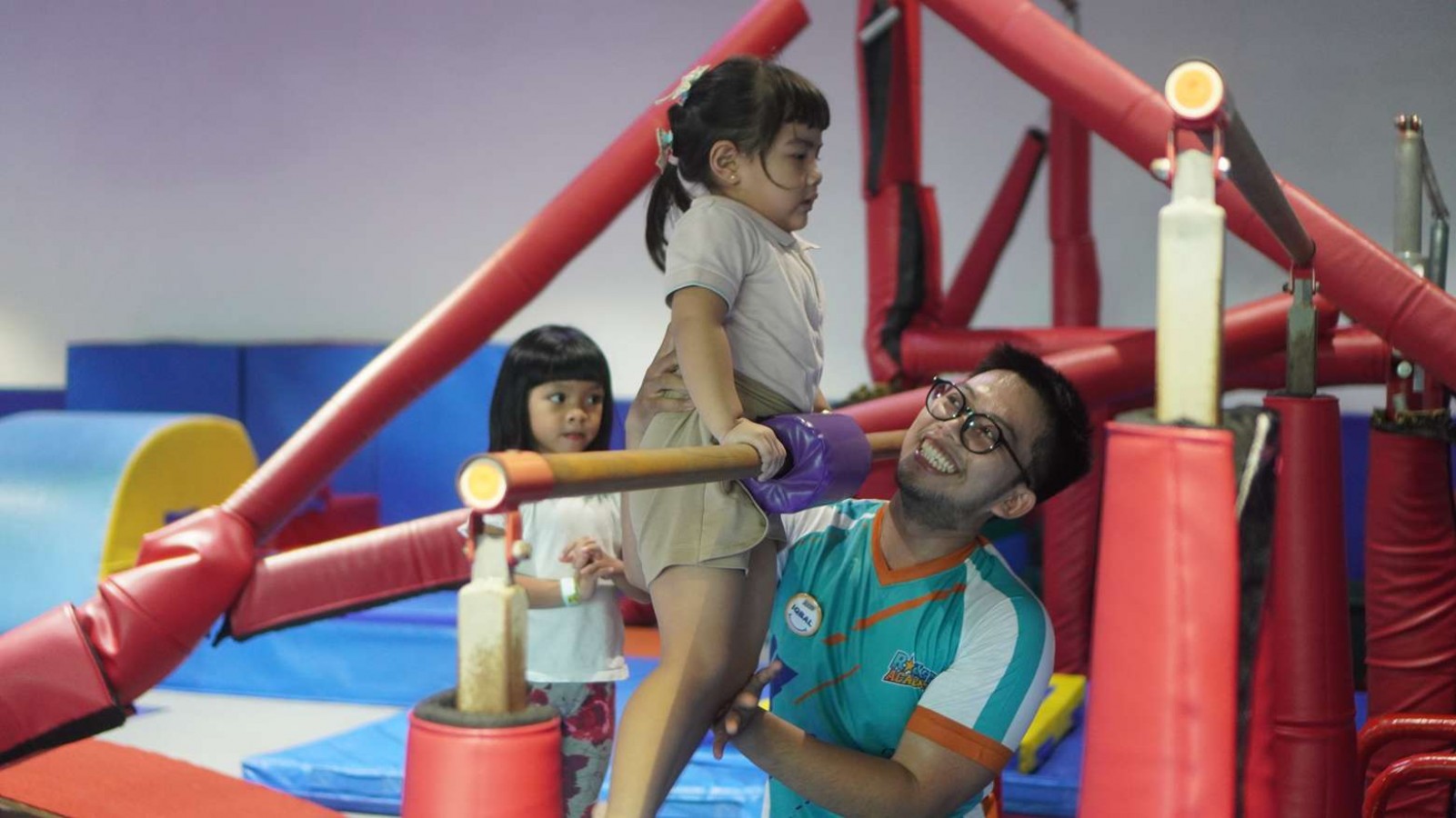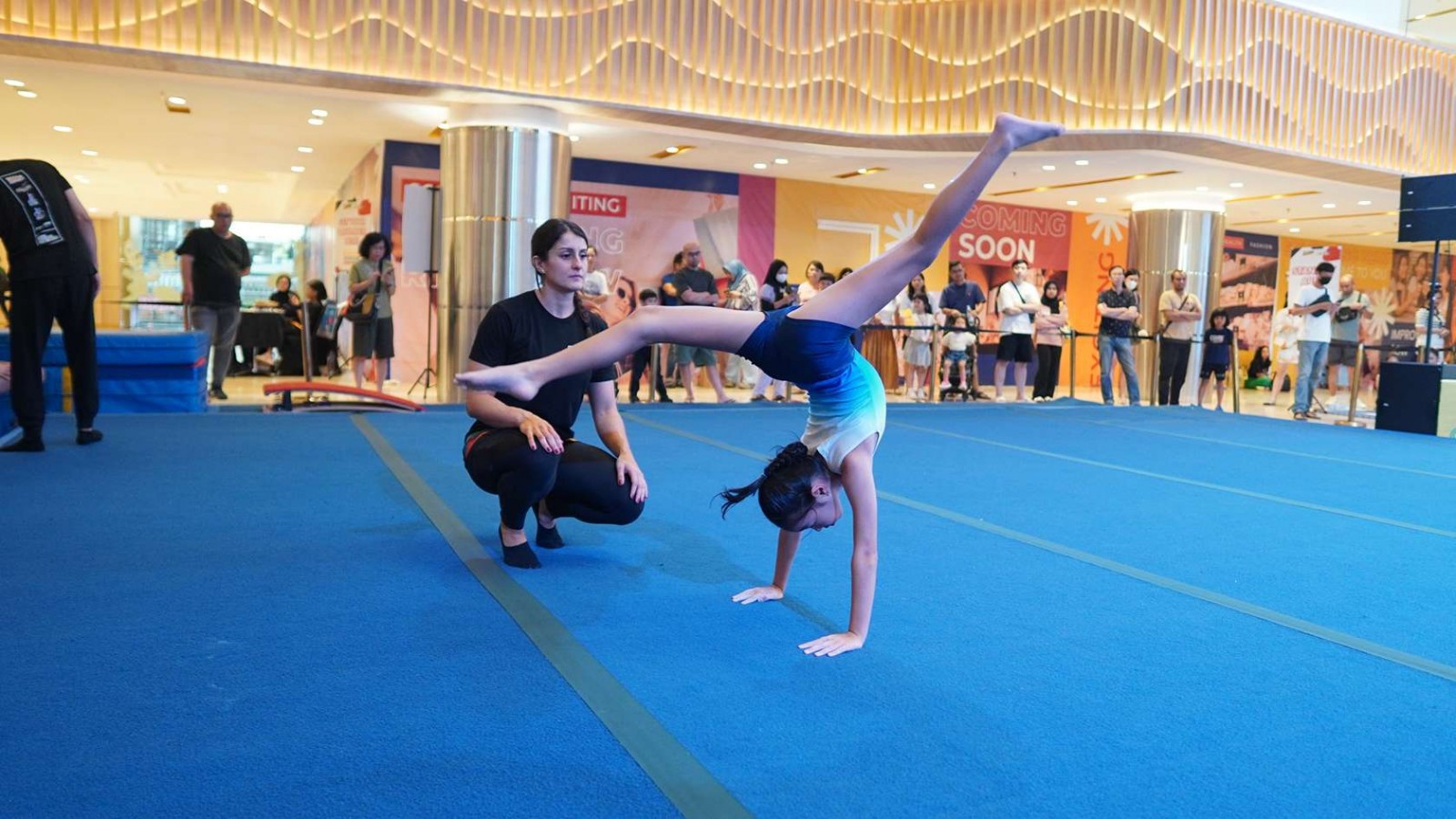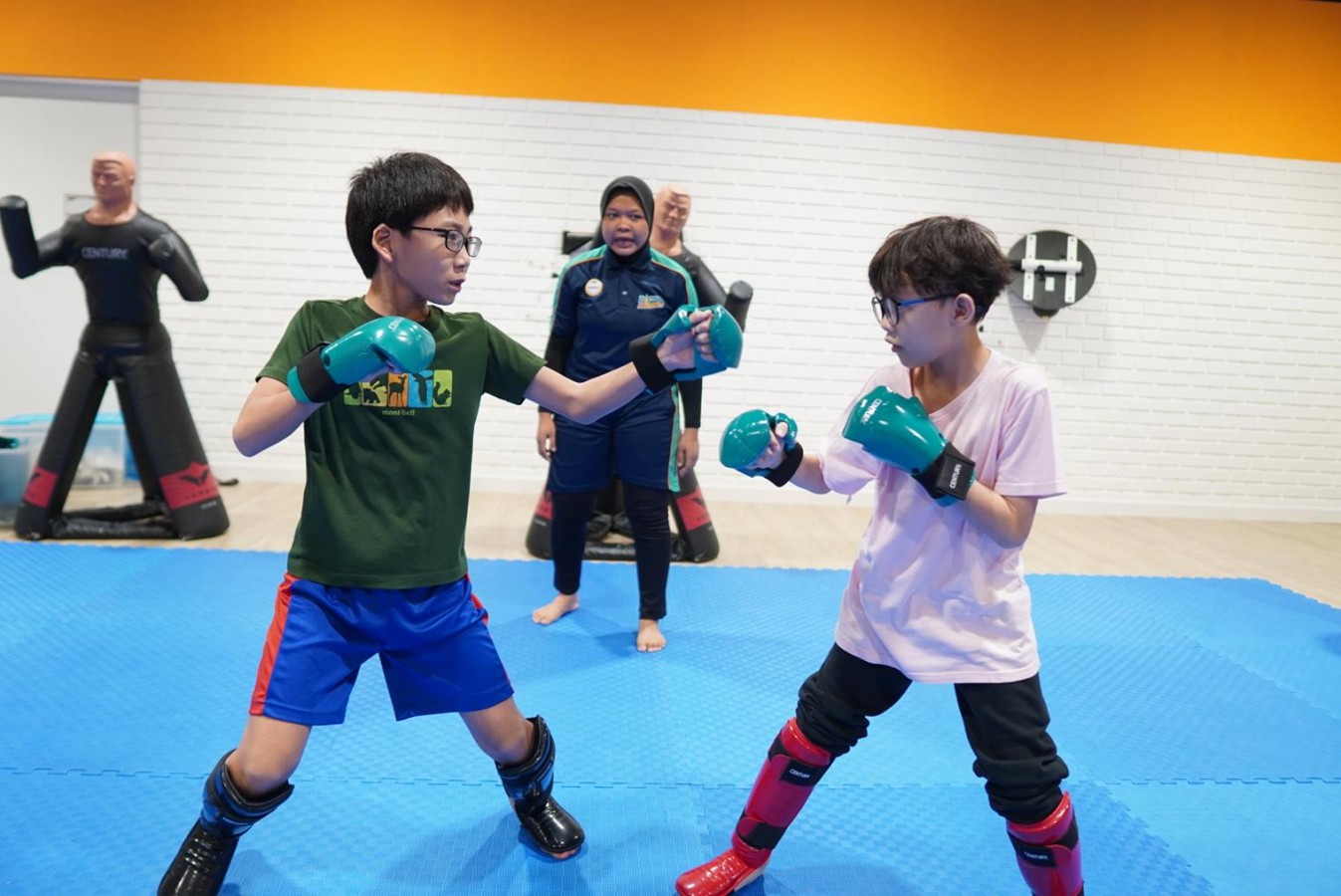When to Begin Gymnastics? Here's The Answer!
 (1).jpg)
As parents, we often find ourselves pondering the right time to introduce our children to various activities. Gymnastics is a popular choice for many parents. But what is the ideal age to start your child in gymnastics?
How can you tell if they're ready, and what are the benefits of enrolling them in classes early? Let's explore these questions and more to help you make an informed decision.
Is My Child Ready for Gymnastics?
Determining if your child is ready for gymnastics involves assessing both their physical abilities and their interest level. While there is no set age requirement, most children can begin gymnastics classes as early as toddlerhood. Look for signs of coordination, strength, flexibility, and a willingness to try new things. Here are some indicators that your child may be ready for gymnastics:
1. Physical Coordination
Notice if your child can walk, run, jump, and balance with relative ease. These basic motor skills are foundational for gymnastics.
2. Interest in Movement
Does your child enjoy climbing, tumbling, or imitating movements they see? If yes, this could indicate a natural inclination towards gymnastics.
3. Attention Span
While young children may have short attention spans, they should be able to follow simple instructions and participate in structured activities for short periods.
4. Comfort in Social Settings
Gymnastics classes often involve interaction with instructors and other children. If your child is comfortable in group settings, they may thrive in a class environment.
Timeline for Developing Gymnastics Skills
Gymnastics is a fun and challenging sport that requires strength, flexibility, and balance. Knowing the right age to start can help children build strong foundational skills. Here's an easy guide to understanding when and how kids can begin their gymnastics journey based on their age and goals.
A. Early Childhood (Ages 2-5): Building Basics
- Best for: Recreational gymnastics.
- Focus: Fun, games, and basic motor skills like balance, coordination, and flexibility.
- Example activities: Tumbling, simple stretches, and balancing on low beams.
Starting early introduces kids to movement and builds confidence, creating a love for the sport.
B. Ages 5-7: Learning Key Skills
- Best for: Developing basic gymnastics skills.
- Focus: Forward rolls, cartwheels, handstands, and strength exercises like push-ups.
- Why it’s important: Kids at this age gain strength and coordination, making it a perfect time to set a strong foundation.
C. Ages 7-10: Competitive Training Begins
- Best for: Kids showing interest and potential for competition.
- Focus: Advanced skills like back handsprings and mastering apparatuses (beam, bars, vault, floor).
- What to expect: Training becomes more structured, with competitions starting around age 9 or 10.
D. Ages 10-13: Refining Skills
- Best for: Pre-teens ready for intensive training.
- Focus: Complex moves, artistic routines, and mental preparation for competition.
- Key highlights: Strength training and injury prevention are prioritized.
E. Ages 13 and Up: Late Starters and Elite Training
- Best for: Teens with athletic experience or recreational goals.
- Focus: Advanced tumbling, mental resilience, and overall fitness.
- Challenges: Starting late can limit elite potential but still offers physical and mental benefits.
Is There an Ideal Age to Start Gymnastics?
The best age to begin gymnastics depends on individual goals and interests. Generally, starting between ages 3 and 6 is great for most kids. At this age, they are physically and developmentally ready to learn basic gymnastics skills. Early classes focus on improving motor skills, balance, and coordination while fostering a love for movement, setting the stage for long-term success.
- For Recreational Gymnasts
Children aged 3 to 7 are well-suited for recreational gymnastics. During this period, they can develop essential skills like flexibility, coordination, and strength. Starting young also encourages overall fitness in a fun and relaxed way, without the pressure of competing.
- For Competitive Gymnasts
If a child is interested in competitive gymnastics, starting between ages 6 and 8 is ideal. This gives them the chance to build a solid foundation, progress through levels, and refine skills needed for advanced competitions. Many who start during this time have a better opportunity to reach higher competitive levels.
- For Teenagers and Late Starters
Starting gymnastics after age 10 may make it harder to reach elite levels, but it’s never too late to enjoy the sport. Teens and late starters can benefit from recreational gymnastics to stay active, improve fitness, and learn new skills, even if they don’t compete at the highest levels.
No matter the age, with proper training, dedication, and support, anyone can find joy and success in gymnastics.
The Goals of Enrolling in Gymnastics Classes
Enrolling your child in gymnastics classes offers a range of benefits beyond simply learning flips and tumbles. Here are some of the primary goals parents may have when signing their child up for gymnastics:
A. Physical Fitness
Gymnastics promotes strength, flexibility, coordination, and overall physical fitness. It helps children develop a strong foundation of athleticism that can benefit them in various sports and activities.
B. Confidence Building
Mastering new skills and overcoming challenges in gymnastics can boost a child's self-esteem and confidence. This confidence can translate into other areas of their life, such as academics and social interactions.
C. Discipline and Focus
Gymnastics requires discipline and focus to learn and perform routines correctly. By participating in classes, children learn the value of hard work, practice, and perseverance.
D. Social Skills
Interacting with instructors and peers in a gymnastics class will help children develop social skills such as teamwork, communication, and cooperation.
E. Goal Setting and Achievement
Setting goals, whether it's mastering a new skill or perfecting a routine, teaches children the importance of setting objectives and working towards them.
Why Start Gymnastics Early?
While some parents may wonder if it's better to wait until their child is older to start gymnastics, there are several reasons why starting early can be beneficial:
1. Development of Fundamental Skills
Young children have a natural ability to learn and adapt. Starting gymnastics at a young age allows them to develop fundamental movement skills that form the basis for more advanced techniques later on.
2. Increased Flexibility
Children are typically more flexible at a younger age which makes it easier for them to learn gymnastics skills that require bending, stretching, and contorting their bodies.
3. Reduced Fear of Falling
Young children are often less inhibited and more willing to try new things, including challenging gymnastics maneuvers. Starting early can help them overcome fear and develop confidence in their abilities.
4. Long-Term Progression
Starting gymnastics early provides children with the opportunity for long-term progression and skill development. They can gradually build upon their abilities over time, laying the groundwork for potential future success in the sport.
Your Kids Are Ready!
Ultimately, the right age for your child to start gymnastics depends on their individual readiness and interests. By assessing their physical abilities, interest level, and goals for enrolling in gymnastics, you can make an informed decision that sets them up for success.
Whether they start as toddlers or older children, gymnastics can offer numerous benefits that extend far beyond the gymnasium walls, helping them develop confidence, discipline, and a lifelong love of physical activity.
Generally, each age has a different training program that is tailored to their respective ages. Rockstar Academy offers a diverse range of Sports & Performing Arts Academy programs, such as gymnastics, dance, broadway, ballet, sports and many more.
Not to worry, parents also get the opportunity to sign up for Rockstar Academy's free trial which is available throughout the program!
FAQ
Can my child start gymnastics if they have no prior experience?
Yes! Most gymnastics programs offer classes for beginners of all ages, including young children with no prior experience.
Will starting gymnastics at a young age increase the risk of injury?
While any physical activity carries some risk of injury, gymnastics classes for young children typically focus on basic skills and safety techniques to minimize the risk.
What if my child loses interest in gymnastics after starting classes?
It's not uncommon for children to explore various activities before finding the ones they enjoy most. If your child loses interest in gymnastics, you can explore other sports or activities that align with their interests and preferences.
How many hours per week should my child dedicate to gymnastics?
The recommended number of hours varies depending on your child's age, skill level, and goals. In general, younger children may start with one or two shorter classes per week, gradually increasing as they progress.



